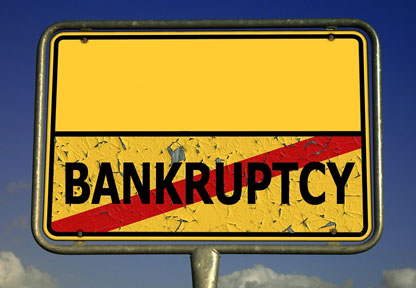Unless you’re a lawyer, you probably have no idea what Chapter 7 and Chapter 13 really mean. To many of our clients, legal terms can really be intimidating.
We want to help you understand the difference so you can make the best decision for you and your family.
Bankruptcy is bankruptcy
It doesn’t matter what kind you file.
Truth: There are two common types of consumer and small business bankruptcy. Each one takes a different approach to solving your financial problems.
Chapter 7 is commonly referred to as a “liquidation bankruptcy.” But this doesn’t mean you have to sell all your assets. In fact, we are very successful in helping a large percentage of our clients keep the majority of their assets.
In Chapter 13, you and your attorney work with your creditors to create a plan to reduce your overall debt and then set up an affordable payment structure over a 3 to 5 year period. Many times our clients pay LESS THAN 10% of what is owed on credit card debt.
So is Chapter 7 or Chapter 13 best for you? After getting to know you and your situation a little better, we can answer that question for you.
Not everything you’ve heard about bankruptcy is true. In fact, there are a number of myths about bankruptcy floating around. And if you buy into these myths, you may never take action to get yourself out of a difficult situation – one that seems to be escalating.
Your financial situation is likely taking a toll on you:
You may feel trapped and need to talk to someone you can trust.
You may feel anxious and need to find answers from someone who knows the facts about what you can and can’t do.
You may feel tired and need some hope to keep you going.
Or maybe you just want to ask someone what you should do next?
To help you get clear about your options, let’s take a look at the first MYTH about bankruptcy:
It’s hard to file bankruptcy because of new laws that have been passed.
Truth: Bankruptcy is easy to file when you meet the legal criteria to do so. In fact, more bankruptcies are being filed in America now that at any other time in history.
If bankruptcy is something you’re considering and you’d like to know whether or not you are eligible to file, please pick up the phone and give us a call. Our initial client consultation is absolutely complementary. There is no charge…no obligation…and we can help you make the best decision for you and your family.
You’ll be amazed at the relief you will feel when just this one simple question is answered:
“Am I eligible to file bankruptcy?”
And we can answer that question for you in a single consultation.
Please visit our website for more information about us and bankruptcy. Call us today at (713) 974-1151 to schedule a no-obligation consultation or feel free to email us at [email protected]
[paypal-donation]













